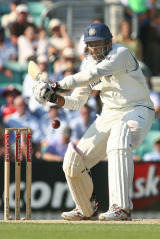Partnerships and byes galore
Stats highlights from the second day of The Oval Test
S Rajesh
10-Aug-2007
The second day of The Oval Test had plenty of statistical highlights. Here are some of the main ones:
|
|

|
S Rajesh is stats editor of Cricinfo